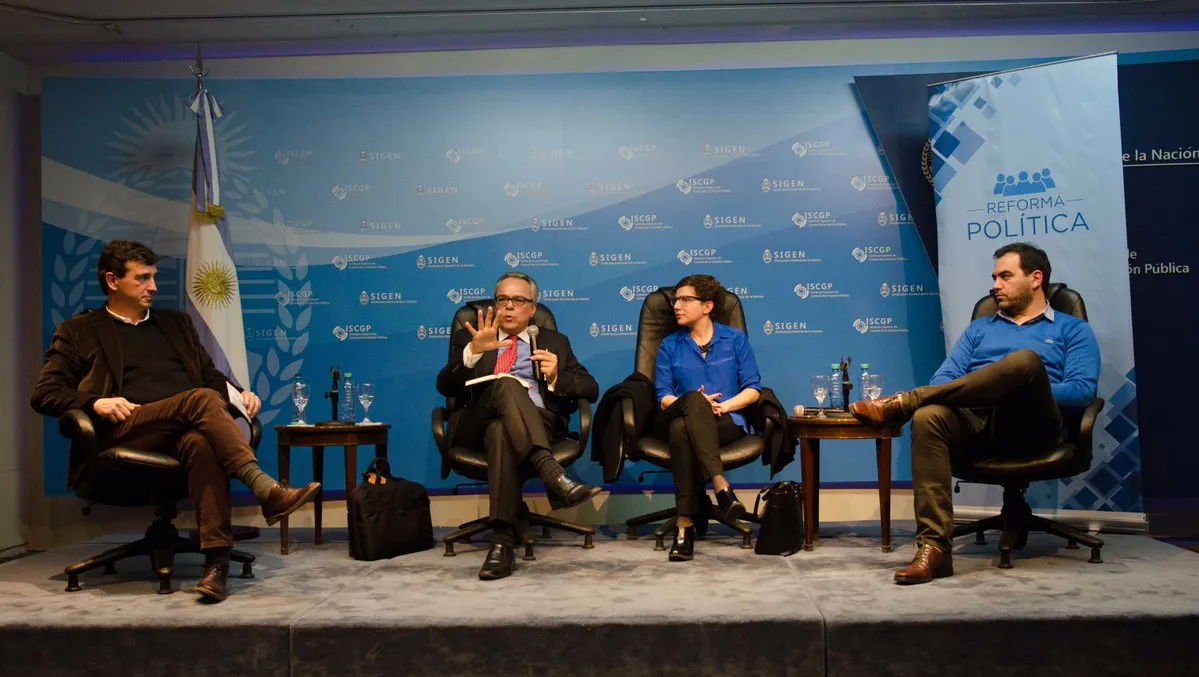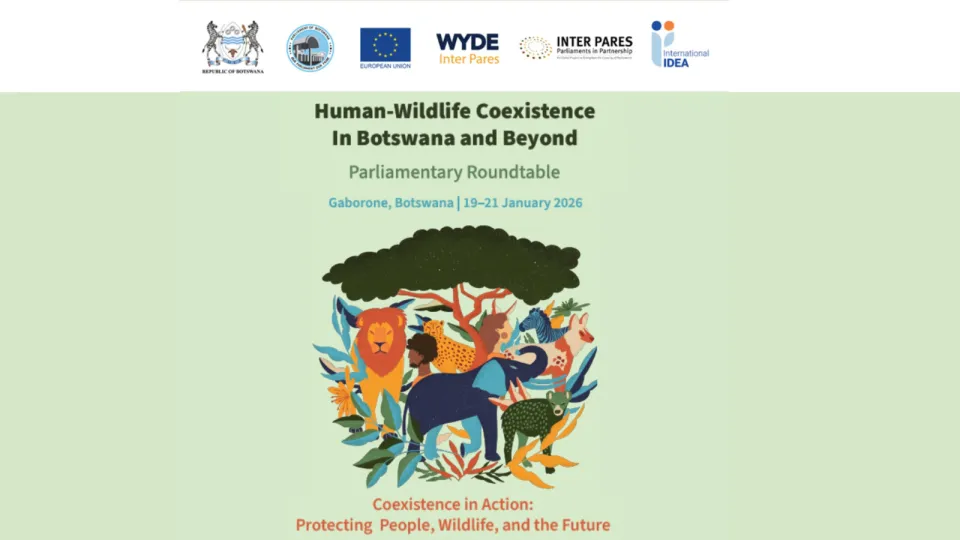Government and experts look for answers in reforming financing of politics

Financing of political parties and electoral campaigns as part of larger political reform was the main topic of a seminar held on 28 July at the Sindicatura General de la Nación in Buenos Aires, Argentina.
The aim of the seminar, 'Financing of Politics: Challenges for Reform', was to create a joint diagnostic assessment on the strengths and weaknesses of the current system of financing of political parties and electoral campaigns. The ultimate goal of the event hosted by the Secretariat of Political and Institutional Affairs of the Ministry of the Interior, Public Works and Housing is to develop a new bill that is supported by the necessary consensus.
The participants included the Ministry of the Interior, Public Works and Housing Rogelio Frigerio, and the Secretary of Political Affairs Adrián Pérez, in addition to well-known experts in the field of political finance. The discussion panel was moderated by Marcos Novaro of the Center of Political Research, and included Julia Pomares, Executive Director of the CIPPEC and Argentina Elige, Pablo Secchi, Executive Director of Poder Ciudadano, and Daniel Zovatto, Regional Director of International IDEA for Latin America and the Caribbean.
According to Minister Frigerio, "There is a growing concern among citizens with regards to transparency and corruption, and we, as political leaders, must provide a clear answer. "Public works and campaign finance are two major vectors of political corruption."
Adrián Pérez said, "At the Government we are convinced that this is the way we must follow, enabling us to meet our objectives as regards political finance, i.e., reducing the cost of politics, increasing transparency on the origin and the destination of money, preventing [money] laundering and access to money from illicit activities, and creating more equal conditions for competition".
Zovatto presented the main trends for political finance reform currently found in Latin America. He noted that while democracy has no price, financing it does bear some cost. He added, money in politics—characterized by being indispensable yet at the same time complex and controversial issue— should not be demonized. Instead it should be adequately regulated, thereby ensuring that it is the democratic system which controls money, and not the other way around. In his lecture, Zovatto underscored just how significant the work International IDEA has been doing is in this field, which is closely related to the integrity of elections and the quality of democracy. He also presented the main recommendations included in International IDEA's latest edition of its handbook on political finance, as well as the main trends emerging from International IDEA's database on political finance (with information on 180 countries).
Other participants were the Undersecretary of Political Affairs Julio Postiglioni; the Undersecretary of Electoral Affairs Ezequiel Fernández Langan; and the Undersecretary of Institutional Reform and Democracy Strengthening Marina Carbajal, as well as Jorge Landeau, representative of the Partido Justicialista, national MP Pablo Tonelli, and Martiniano Molina, supervisor of Quilmes.
After the seminar, authorities of the Ministry of the Interior plan to convene political parties, judges, academia and civil society organizations for a round of talks to gather perspectives on the subject and move toward political reform on the financing of politics.



